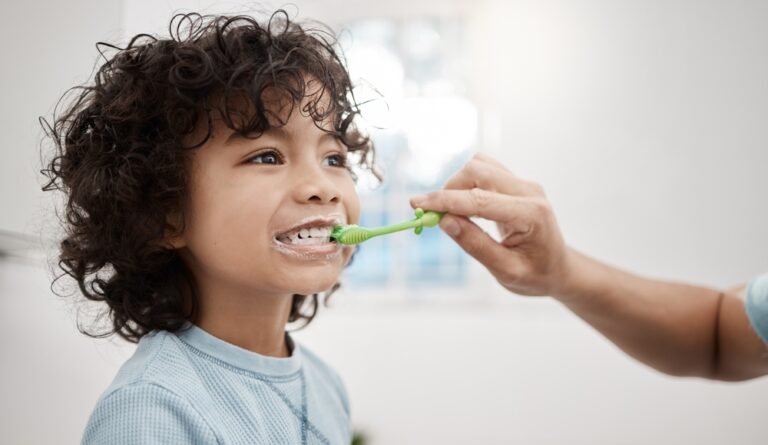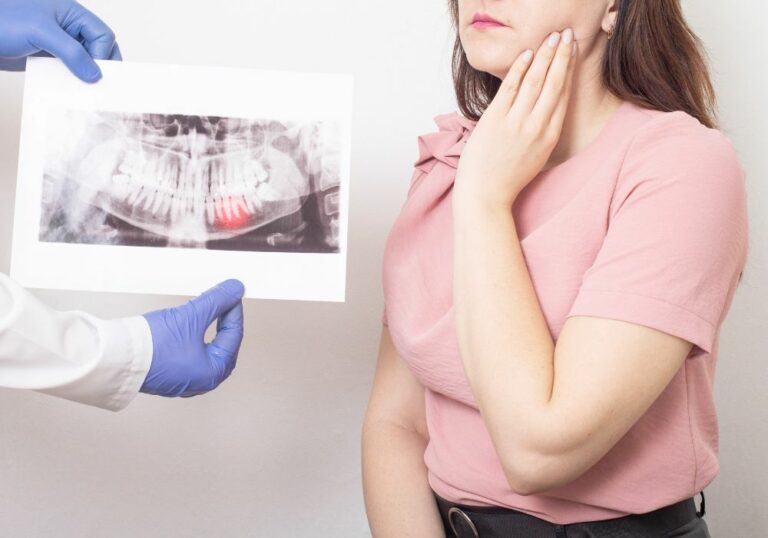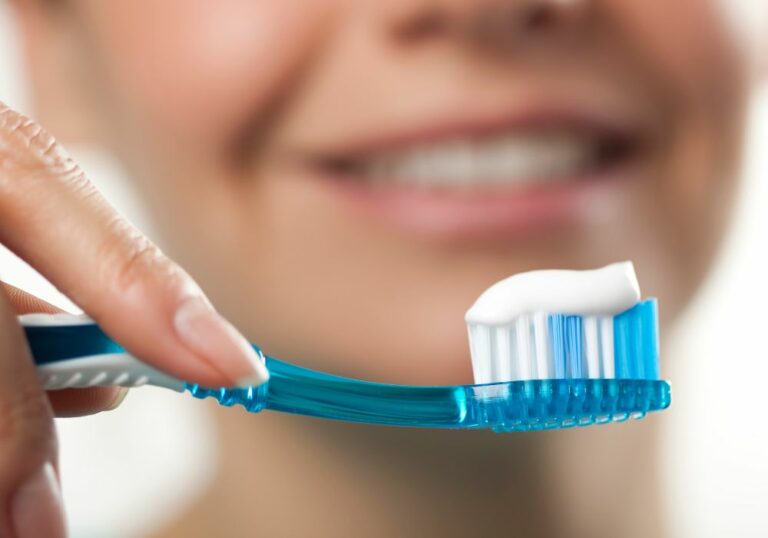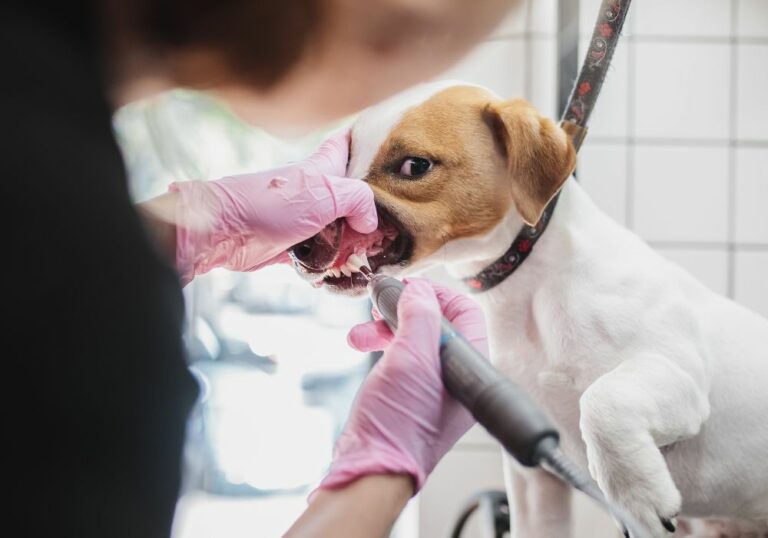If you recently had your wisdom teeth removed, you may be wondering when it’s safe to start using mouthwash again. While mouthwash can be an effective way to freshen your breath and kill bacteria, it’s important to follow your dentist’s instructions to avoid complications during the healing process.
Generally, dentists recommend that you wait at least 24 hours after wisdom teeth removal before using mouthwash. This is because the surgical site is still healing and using mouthwash too soon can disrupt the blood clot that’s formed to protect the area. If the blood clot is dislodged, it can lead to a painful condition called dry socket.
If you’re six days post-op and wondering if it’s safe to use mouthwash, the answer is likely yes. By this point, your surgical site should be well on its way to healing and any bleeding or discomfort should have subsided. However, it’s always a good idea to check with your dentist first to make sure it’s safe for you to use mouthwash and to get their recommendations for which type to use.
Understanding Wisdom Teeth Removal
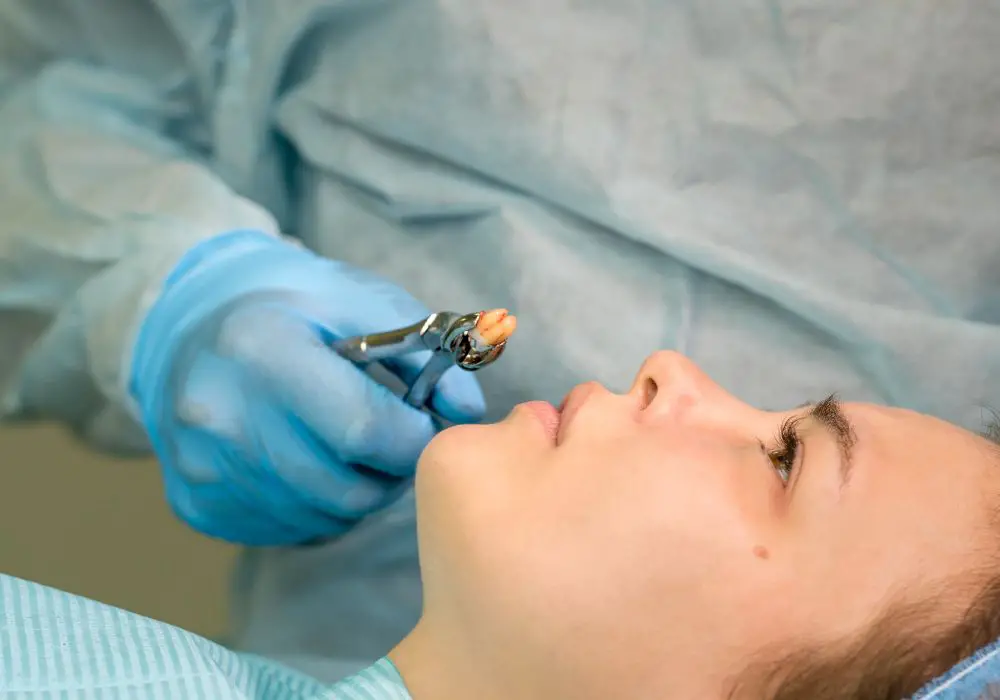
If you’re experiencing pain, swelling, or other dental problems caused by wisdom teeth, your dentist may recommend removing them. Wisdom teeth removal is a common procedure that involves extracting one or more of the four permanent adult teeth located at the back corners of your mouth on the top and bottom. Here’s what you need to know about the procedure and post-operative care.
The Procedure
Before the procedure, your dentist or oral surgeon will administer anesthesia to numb the area around the tooth or teeth to be removed. Depending on the complexity of the extraction, you may receive local anesthesia, sedation anesthesia, or general anesthesia. Once the anesthesia has taken effect, your dentist or surgeon will use specialized tools to loosen the tooth from the socket and remove it. The procedure typically takes between 30 minutes and an hour.
Post-Operative Care
After the procedure, it’s important to follow your dentist’s instructions for post-operative care to minimize pain, swelling, and the risk of infection. Here are some tips:
- Bite down on gauze pads to reduce bleeding and promote clotting. Change the gauze pads every 30-45 minutes until bleeding stops.
- Apply an ice pack to your cheek for 10-20 minutes at a time to reduce swelling.
- Avoid smoking, drinking through a straw, or spitting for at least 24 hours to prevent dislodging the blood clot that forms in the socket.
- Eat soft foods and avoid hard, crunchy, or sticky foods for the first few days after the procedure.
- Rinse your mouth gently with warm salt water after meals to keep the extraction site clean and promote healing.
- Avoid using mouthwash for at least 48 hours after the procedure to prevent irritation or dislodging the blood clot.
- Take pain medication as prescribed by your dentist or surgeon to manage discomfort.
By following these tips, you can help ensure a smooth recovery and minimize the risk of complications after wisdom teeth removal.
The Role of Mouthwash
After getting your wisdom teeth removed, you may be wondering if it is safe to use mouthwash. While mouthwash can have benefits, there are also potential risks to consider.
Benefits
Using mouthwash can help keep your mouth clean and prevent infection. It can also help reduce bad breath and promote healing. Some mouthwashes contain antiseptic properties that can help kill bacteria and prevent the development of dry socket, a painful complication that can occur after tooth extraction.
Potential Risks
However, using mouthwash too soon after wisdom teeth removal can actually increase the risk of developing dry socket. This is because the mouthwash can dislodge the blood clot that forms over the extraction site, which is necessary for proper healing. Dry socket can cause severe pain and delay the healing process.
It is recommended to wait at least 24 hours after wisdom teeth removal before using mouthwash. Your dentist or oral surgeon may also provide specific instructions on when it is safe to use mouthwash based on your individual situation.
In addition to waiting, it is important to choose the right type of mouthwash. Avoid using mouthwash that contains alcohol, as this can irritate the extraction site and delay healing. Instead, opt for an alcohol-free mouthwash that is gentle on your mouth.
In summary, using mouthwash after wisdom teeth removal can have benefits, but it is important to wait until the appropriate time and choose the right type of mouthwash to avoid potential risks.
Using Mouthwash After Wisdom Teeth Removal
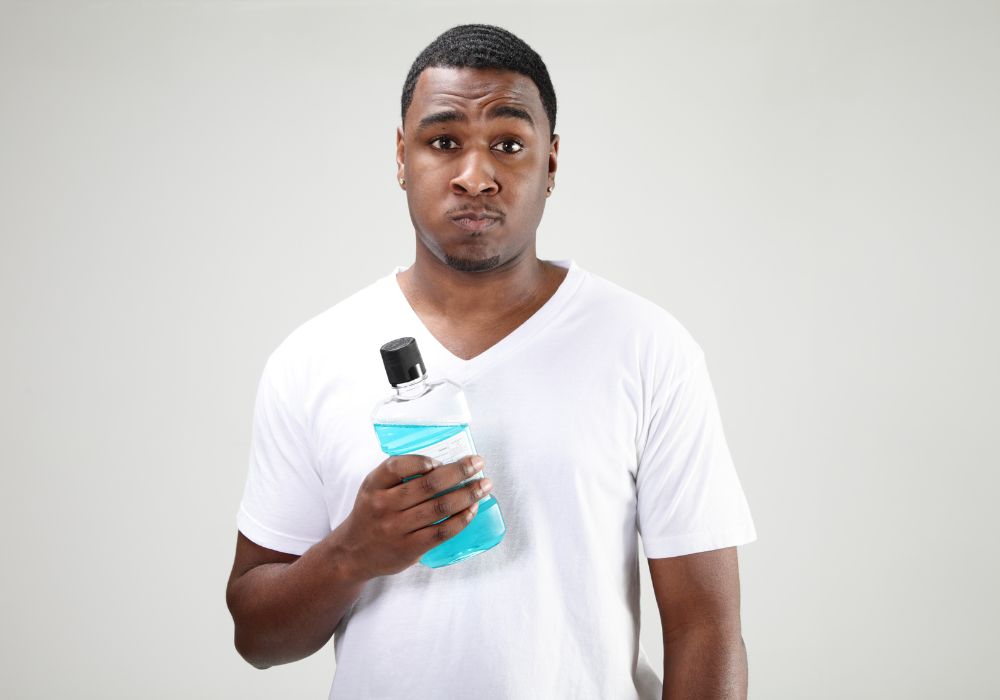
If you have recently had your wisdom teeth removed, you may be wondering when it is safe to use mouthwash. While mouthwash can be a helpful addition to your oral hygiene routine, it is important to use it correctly to avoid any complications.
Ideal Time to Start
After wisdom teeth removal, it is generally recommended to wait at least 24 hours before using mouthwash. During this time, it is important to follow your dentist’s instructions for caring for the extraction site, which may include rinsing with salt water or using a medicated mouthwash.
Once the initial healing period has passed, you can begin using mouthwash to help keep your mouth clean and fresh. However, it is important to choose the right type of mouthwash and to use it correctly to avoid any complications.
Precautions to Take
When using mouthwash after wisdom teeth removal, there are a few precautions you should take to avoid any issues. Here are some tips to keep in mind:
- Choose an alcohol-free mouthwash: Alcohol can irritate the extraction site and delay the healing process. Look for a mouthwash that is free from alcohol and other harsh ingredients.
- Dilute the mouthwash: If your mouth is still sensitive, you may want to dilute the mouthwash with water before using it. This can help to reduce any stinging or discomfort.
- Don’t rinse too vigorously: When rinsing with mouthwash, be gentle and avoid swishing too vigorously. This can dislodge the blood clot that forms in the extraction site, which can lead to a painful condition called dry socket.
- Wait at least 30 minutes after using mouthwash: To avoid diluting the effects of the mouthwash, wait at least 30 minutes after using it before eating or drinking anything.
By following these precautions, you can safely use mouthwash after wisdom teeth removal to help keep your mouth clean and fresh. However, if you experience any pain, swelling, or other complications, be sure to contact your dentist right away.
Alternatives to Mouthwash
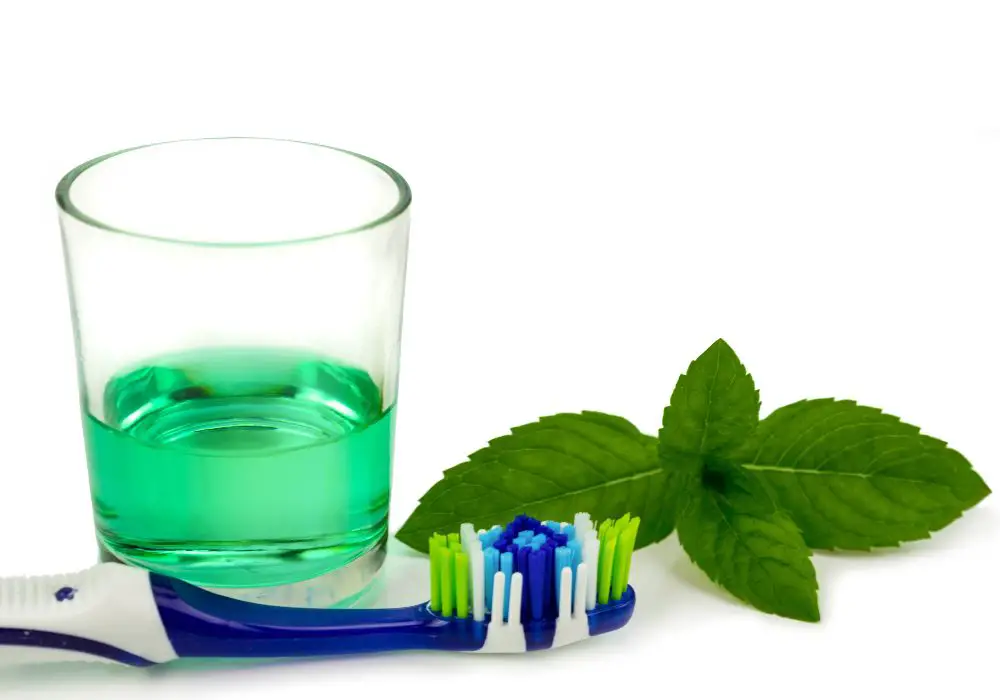
If you’re looking for alternatives to mouthwash after having your wisdom teeth removed, there are a few options you can try:
Salt Water Rinse
A salt water rinse is a natural and effective way to clean your mouth and promote healing after wisdom teeth removal. To make a salt water rinse, dissolve 1/2 teaspoon of salt in a cup of warm water. Swish the solution around your mouth for 30 seconds, then spit it out. Repeat this process 2-3 times a day.
Hydrogen Peroxide Rinse
A hydrogen peroxide rinse can help kill bacteria in your mouth and promote healing. To make a hydrogen peroxide rinse, mix equal parts of 3% hydrogen peroxide and water. Swish the solution around your mouth for 30 seconds, then spit it out. Repeat this process once a day.
Chlorhexidine Rinse
If your dentist recommends it, you can use a chlorhexidine rinse to help prevent infection and promote healing after wisdom teeth removal. Chlorhexidine is an antiseptic that kills bacteria in your mouth. Follow your dentist’s instructions for using a chlorhexidine rinse.
Soft-bristled Toothbrush
Using a soft-bristled toothbrush can help keep your teeth and gums clean without irritating your mouth after wisdom teeth removal. Brush your teeth gently, using a circular motion, and avoid brushing the extraction site.
Oral Irrigator
An oral irrigator, also known as a water flosser, can help clean your mouth and remove food particles without causing irritation. Use the lowest setting and be gentle around the extraction site.
Remember to follow your dentist’s instructions for post-operative care after wisdom teeth removal. If you have any questions or concerns, don’t hesitate to contact your dentist.
Frequently Asked Questions
When can I safely use mouthwash after wisdom teeth removal?
It is recommended that you wait at least 48 hours after wisdom teeth removal before using mouthwash. This is to allow the blood clot to form and avoid dislodging it. After 48 hours, you can use a gentle mouthwash to help keep your mouth clean and reduce the risk of infection.
What is the best mouthwash to use after wisdom teeth removal?
A gentle, alcohol-free mouthwash is the best choice after wisdom teeth removal. You can also use a mouthwash that contains chlorhexidine, which has antibacterial properties that can help prevent infection. However, it is important to use it as directed and not for an extended period of time.
Is it okay to use non-alcohol mouthwash after wisdom teeth removal?
Yes, it is okay to use non-alcohol mouthwash after wisdom teeth removal. In fact, it is recommended to use a gentle, alcohol-free mouthwash to avoid irritation and dryness of the mouth.
Can I use medicated mouthwash after wisdom teeth removal?
It is best to avoid medicated mouthwash after wisdom teeth removal unless prescribed by your dentist or oral surgeon. Some medicated mouthwashes can be too harsh and cause irritation or delay the healing process.
How long should I wait to use Corsodyl after a tooth extraction?
You should wait at least 48 hours before using Corsodyl or any other mouthwash after a tooth extraction. It is important to follow the instructions provided by your dentist or oral surgeon to avoid any complications.
What are some recommended activities 6 days after wisdom teeth removal?
At this point, you should be feeling much better and able to resume normal activities. However, it is still important to avoid strenuous exercise, smoking, and consuming hard or crunchy foods. Stick to soft foods and continue to rinse your mouth gently with a mouthwash or saltwater solution. If you experience any pain or swelling, contact your dentist or oral surgeon.


